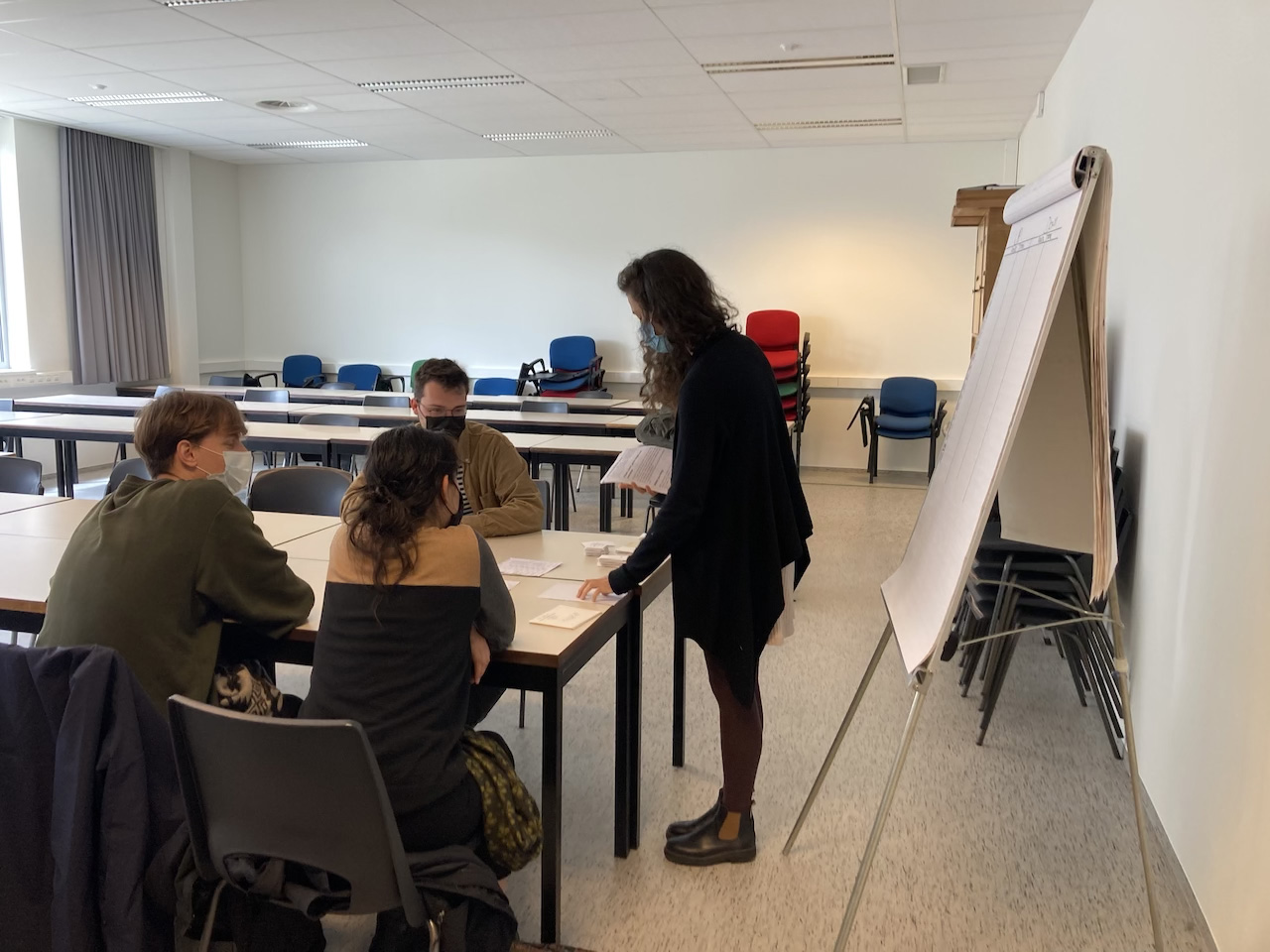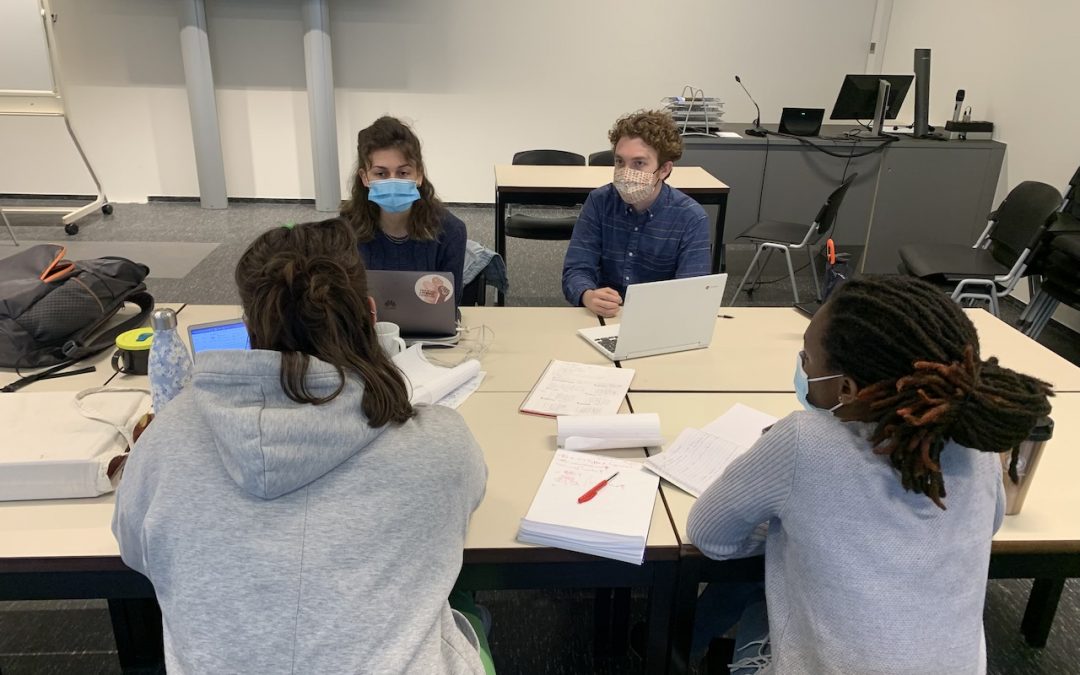By Julia Casadoumecq, Camille De Herdt, Carolina Londono, Chiara Smiths, Michał Nowak, Shanchuan Tian.
We decided to create a complete toolkit following the insights of the experimental learning cycle created by David Kolb. He identified four components in the learning process: establishing that we learn by doing something, thinking about it, researching, talking with others, applying what we know, and experimenting with the acquired knowledge. This approach offers the opportunity to contact phenomena, study them, understand them, and try to do something with and about the new learning (Kolb, 1984).
Considering this cycle, the toolkit includes two relevant components, Participatory Tools which aim gathering data for research proposes, and a simulation game that works as a learning tool regarding environmental change. Our work during the living lab followed these stages:
We found in the collective work an excellent strategy to enrich and develop our games during the Living Lab. Every day each group contributed to valuable insights that have shaped the final version. We witnessed how different abilities were vital during this collaborative work when we have to overcome specific difficulties. For instance, more creative classmates helped to develop the first drafts; others were focused on creating the guide and enhance the point system; for some, the designing stage was more straightforward, providing incredible products in this regard.
We also experienced some challenges building the tools. First, the question about how to avoid biases and contribute to decolonization of knowledge emerged, how to make a game that considers all students and teachers, taking into account several contexts and realities? There is still no answer for us; however, we tried to approach the simulation game and the participatory tools, keeping South Africa’s reality in mind. We were based on the previous generation of student’s insight and the Professor’s suggestions. Regarding the biases, we made a permanent effort to keep our north always think when an element or aspect of the games was linked mainly with our preconceptions and assumptions.
Finally, we hope to share these tools with all people that consider them useful in educational and research terms. This is an “Open” toolkit that allows several modifications under particular contexts and aims.
Kolb, D. (1984). Experiential Learning: Experience As The Source Of Learning And Development. In Journal of Business Ethics (Vol. 1).

Testing the game and incorporating insights © SUSDEV

Day 5- playing time and insights© SUSDEV


